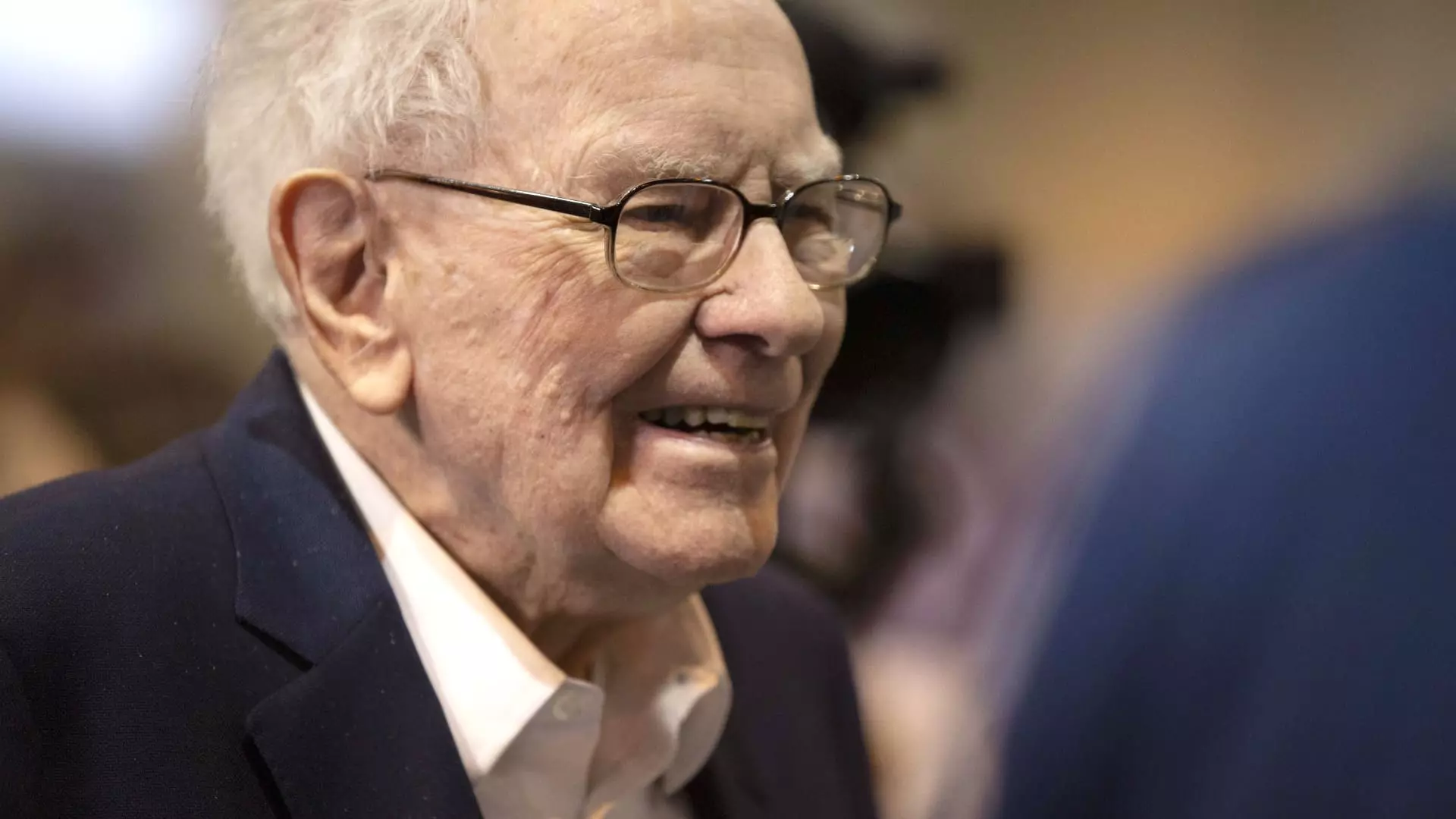The investment landscape is as dynamic as it is multi-faceted, with few figures as emblematic of its intricacies as Warren Buffett. As the 94-year-old CEO of Berkshire Hathaway, Buffett has long been celebrated for his insightful equity purchases and steadfast commitment to long-term value investing. However, his recent moves have sparked both intrigue and concern among shareholders and investment analysts alike. With reports highlighting a record cash reserve of $334 billion and a strategic retreat from stock holdings, questions abound regarding Buffett’s intentions. This article delves into the implications of Buffett’s current strategy and its potential impact on the market.
Recent developments at Berkshire Hathaway reveal a startling shift in Buffett’s approach. Traditionally, Buffett’s investment philosophy has revolved around aggressive equity acquisitions. Nonetheless, recent reports indicate that he sold over $134 billion worth of stocks in 2024, marking the ninth consecutive quarter of net equity sales. This juxtaposition of significant cash accumulation alongside a reduction in stock holdings has left many speculating about Buffett’s strategic pivot. Compounding these questions is Buffett’s decision to halt share buybacks, even amid substantial operating earnings.
Analysts and shareholders have begun to express impatience over Buffett’s perceived inactivity as the broader market rallies. The S&P 500, a benchmark widely watched by investors, has enjoyed remarkable growth, gaining over 20% for two consecutive years. Yet, in stark contrast, Buffett’s actions have led to growing apprehension—not just about his investment philosophy but also about Berkshire Hathaway’s posture in an environment ripe with opportunity.
Buffett’s unprecedented cash position has raised eyebrows, particularly given current market conditions characterized by expectations of declining interest rates. Historically, Buffett has thrived on identifying undervalued equities. Yet, in his latest annual letter, he attempted to clarify his stance, asserting that his cash reserves do not indicate a diminished affinity for stocks. “Despite what some commentators believe,” he stated, “the majority of your money remains in equities, and that preference won’t change.” This declaration is intended to assure shareholders that Berkshire will continue to prioritize investment in growth-oriented businesses, albeit while holding a considerable stash of cash.
Yet the question remains: is Buffett’s cash accumulation a prudent strategy to weather potential economic storms, or is it a sign of his growing wariness regarding overvalued market conditions? Observers have noted that Buffett’s frustration with “expensive markets” suggests he may be waiting for more favorable opportunities before making significant investments.
Preparing for the Future: A Transition Phase?
Another layer of complexity to Buffett’s recent maneuvers is the potential transition of leadership at Berkshire. The endorsement of Greg Abel, named as Buffett’s designated successor, signifies a strategic pivot that may be ongoing beneath the surface. By paring down positions and building up cash reserves, Buffett may be preparing the company for a future under Abel’s oversight. This hypothesis posits that Buffett’s conservative strategy isn’t necessarily a bearish market call, but rather a foundational step toward enabling his successor to navigate the complexities of the investment landscape with a more diversified approach.
Buffett’s comparison of Abel to his longtime partner, Charlie Munger, underscores this transitional aspect. In Buffett’s words, Abel has demonstrated a remarkable ability to act decisively, particularly during times lacking compelling opportunities. This implies a deliberate emphasis on the future, where Berkshire can leverage available cash thoughtfully, perhaps even increasing its stake in strategic holdings like the five Japanese trading houses that Buffett has been cultivating since their initial investments nearly six years ago.
As Buffett’s cash strategy unfolds, investors and analysts will be watching closely for signals about his next moves. The prudent accumulation of cash may act as a buffer against volatility, setting the stage for opportunistic investments when valuations become more attractive. However, this unique position may come with a cost—one that could manifest as missed opportunities during market booms.
While the uncertainty surrounding Buffett’s current posture raises pressing questions, it also serves as a reminder of the unpredictable nature of investing. Buffett’s legendary reputation offers comfort to shareholders, but even the most seasoned investors can experience periods of hesitation in a rapidly evolving market. The coming months will reveal whether Buffett’s strategies are prescient or reflect an era of cautious conservatism that challenges his historically aggressive value-driven approach. Ultimately, the balance between cash reserves and equity investments will define not only Berkshire Hathaway’s immediate future but also Warren Buffett’s enduring legacy in the world of investing.

